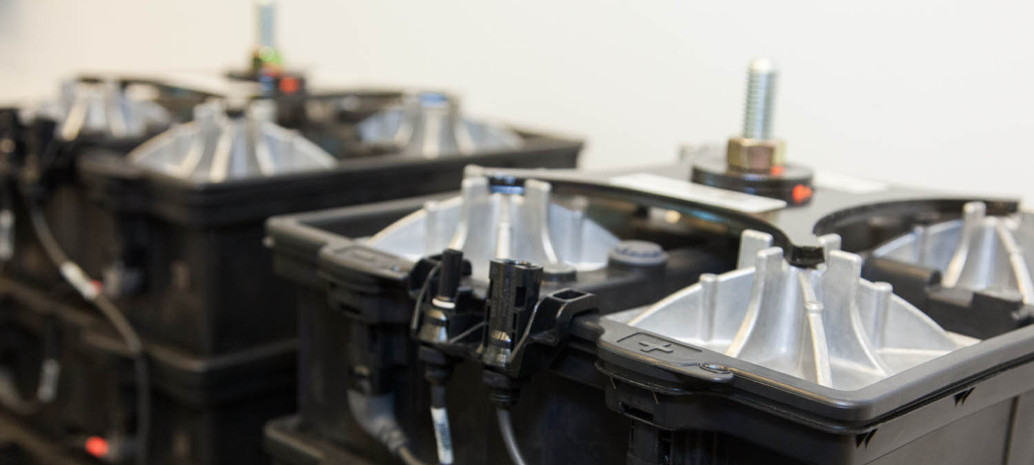China is dominant in the Lithium-ion (Li-ion) battery manufacturing and supply chain, accounting for three-quarters of battery manufacturing capacity. The onset of Covid-19 has created a series of disruptions in the supply chain for Li-ion batteries, which will also impact the Indian electric vehicles and stationary energy storage market.
Limited mobility due to Covid-19 lockdown has impacted shipments from Indian Li-ion battery solution providers too.
“Since our offices remain shut, we will be unable to ship out any orders till the lockdown is lifted, which means we won’t be able to ship out our battery management systems (BMS),” ION Energy Co-founder and CEO Akhil Aryan told pv magazine.
“We are closely monitoring the situation and will take further steps as and when there is clarity on the way forward. In the meantime, we are working remotely to collaborate and communicate with our customers to help with BMS integration and resolve any queries,” he said.
And not just Li-ion, the lead-acid battery manufacturing industry is also facing supply and demand gap.
“Lead-acid manufacturing units are partially shut down during this period, which has impacted employment and domestic production. Further, battery stocks kept in the companies’ warehouses for long periods of 3-6 months stand the risk of getting discharged. Some may even get sulphated, causing early failure and unnecessary financial loss,” India Energy Storage Alliance (IESA) executive director Debi Prasad Dash told pv magazine.
“Pilots and demonstrations of advanced alternative technologies are also on halt as there is low demand due to delayed implementations. The low demand will affect all verticals of energy storage business, including energy storage for renewable integration, residential and commercial & industrial backup, telecom and others.”
Dash underscored that without appropriate government support, many local lead-acid manufacturers, Li-ion assemblers and ecosystem players (SMEs and MSMEs) will face severe financial crisis and 20-25% of these players will have to permanently close their shops due to Covid-19 effect.
Recommendations
To minimise the expected slowdown, Dash recommends the government to create special incentives package for energy storage, electric vehicle (EV) and renewable industry, which includes special GST reduction for a specified period (3 months to 1 year), creation of special energy storage procurement targets for next 1-5 years, and skill development and capacity building training programs in energy storage and EV sector to increase the employment.
IESA will soon send a letter on behalf of the industry stakeholders to the Central Government to take immediate necessary steps to keep the business momentum on track.
On a positive note
The Covid-19 situation has brought to focus India’s reliance on China for most of its Li-ion cell, component, and raw material requirements.
“Like there are two sides to every coin, with this pandemic the industry realized that EV companies in India are relying substantially on China for the parts, and hence are now facing a component shortage, especially for battery cells. They have realized that there is a growing need to focus on indigenization and localization of these components within the country,” Akhil Aryan told pv magazine.
Dash highlighted “this is an appropriate time for the government to focus on Giga Factories manufacturing plan for advanced technologies to avoid similar situations in long run. The government should launch the framework to support indigenous manufacturing capabilities.”
On a positive note, there is an increase in demand for quality and reliable power in critical infrastructure spaces like super specialty hospitals, community clinics, government medicals, banks, disaster recovery centres and data centres. This is driving the demand for back-up solutions and battery installations.
IESA has urged the government to allow partial operation of battery manufacturing plants under essential operation category to support all critical infrastructure.
This content is protected by copyright and may not be reused. If you want to cooperate with us and would like to reuse some of our content, please contact: editors@pv-magazine.com.









By submitting this form you agree to pv magazine using your data for the purposes of publishing your comment.
Your personal data will only be disclosed or otherwise transmitted to third parties for the purposes of spam filtering or if this is necessary for technical maintenance of the website. Any other transfer to third parties will not take place unless this is justified on the basis of applicable data protection regulations or if pv magazine is legally obliged to do so.
You may revoke this consent at any time with effect for the future, in which case your personal data will be deleted immediately. Otherwise, your data will be deleted if pv magazine has processed your request or the purpose of data storage is fulfilled.
Further information on data privacy can be found in our Data Protection Policy.